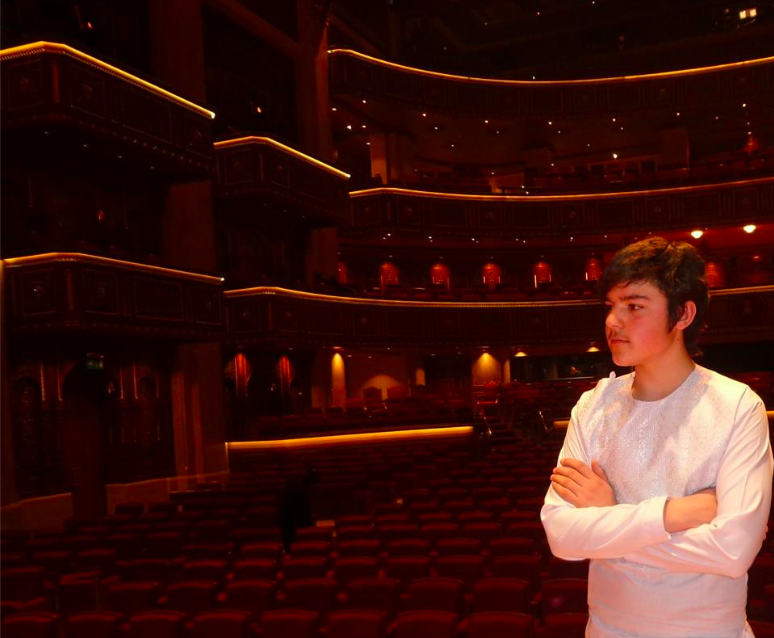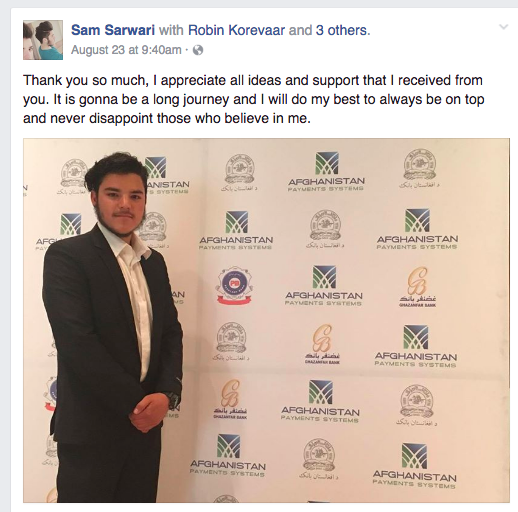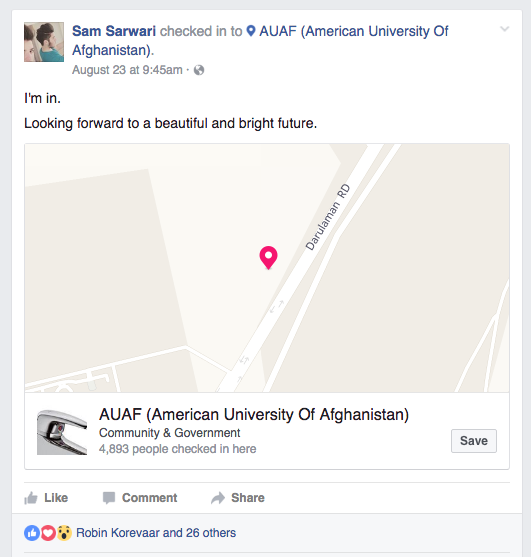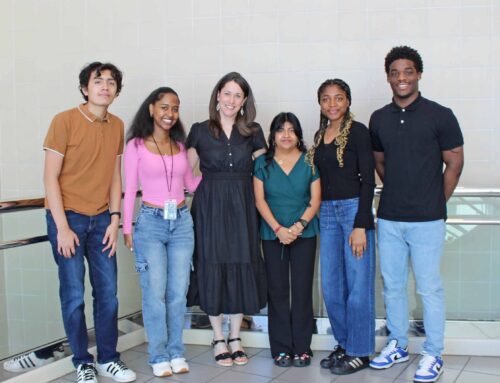
Sami at the Afghanistan music program, where he worked with Lake Highlands musician Robin Korevaar. (Facebook)
Lake Highlands resident Robin Korevaar spent part of 2014 working with music students in Afghanistan — one of her most-promising pupils — a young man who expressed gratitude just days ago about his “beautiful and bright future” — was killed in a horrific attack this week.
Back in January we told you about the talented Afghan music student, Ahmad Baset who, thanks to help from many supporters (including Advocate readers who donated to a GoFundMe account for his tuition), and his Lake Highlands sponsor Robin Korevaar, moved to our neighborhood this month; he is preparing to begin his senior year at the prestigious, selective and expensive Interlochen Center for the Arts in Michigan.
There was a sense of urgency to Baset’s move away from Afghanistan: The teenaged classical trumpeter was born and raised in Kabul Afghanistan. Many in his culture historically have frowned upon classical musicians, or worse. Popular music is now enjoyed on the radio in the streets of Kabul but more conservative followers of his country’s presiding Islamic religion consider music and the playing of it Haram (forbidden). By extremists such as the Taliban, it is even punishable by torture or death.
Baset made it safely to America. Some of his young contemporaries were not as fortunate. At least one, another of Robin Korevaar’s mentees, and a friend of Baset’s, was killed during Thursday morning’s attack on the American University of Afghanistan in Kabul, a liberal arts college established in 2006, which left at least 13 people, including seven students, dead and dozens more wounded.
Korevaar was heartbroken to learn freshman Samiullah Sarwari — with whom she became close when she visited Afghanistan as a guest clinician and artist in 2014 — was one of the dead.
Sarwari recently thanked Korevaar, along with his own family members, in a Facebook post, for her guidance and assistance.
“Thank you so much. I appreciate all ideas and support that I received from you,” he wrote. “It is gonna be a long journey and I will do my best to always be on top and never disappoint those who believe in me.”
That day Robin Korevaar expressed her thrill that the young intern with whom she had worked so closely “earned a full scholarship to the American University of Afghanistan/Kabul and will start his Bachelor of Business Administration studies this fall.”
“Sami worked hard in his English studies and internship this year and has excellent leadership and creative skills to bring to the program,” Korevaar noted a few days ago. “Couldn’t be more proud!”
On Aug. 23 Sarwari “checked in” via Facebook at the university, writing “I’m in. Looking forward to a beautiful and bright future.”
Today the top item on Sarwari’s Facebook timeline is a photo of his lifeless face, followed by notes of grief, condolences and prayers from acquaintances (if you choose to visit the page, which currently is public, be aware that the image is graphic the image has been removed).
Korevaar says she is looking into asylum for the rest of Sarwari’s family, should they want it.
“His younger brother is a talented clarinetist and I would help the family seek asylum through my connections here if that is the best option for them,” she notes.
Korevaar learned about the carnage in Afghanistan and Sami’s death just as she was moving her own teenage son, a 2016 Lake Highlands High School graduate, into his college dorm, making for an emotional few days, she says.
Of Sami, she says, she met him two years back, at the same time she met Baset, who she is moving to his school in Michigan this week.
“I had just spoken to Sami about his dorm situation … He was an elegant musician and full of passion to improve himself. I mentored him, from improving his English skills through local classes to finding an internship online, and he applied for school and was accepted with a full-ride.”
Earlier this year, before moving to the United States to spend August with Korevaar’s family, Sami’s friend Baset spoke of the dangers and unrest in Afghanistan.
“Life in Afghanistan is stressful and difficult, because there are many suicide bombers striking close to my home,” he said. “In the United States, people can choose their careers and become highly qualified musicians, succeeding because of the diligence of their own efforts. In Afghanistan, that is not so … I would love the immense cultural influence that the United States has to offer with music everywhere—classical, jazz, symphonic, folk and more.”
Some of Baset’s peers and a director the previous year were targeted by a suicide bomber at a performance, as described in this recent New York Times article, and terrorist violence has been continuously on the rise there.
The attack that killed Sami began when a car bomb was detonated at the front gate of the university and multiple gunmen forced their way inside the university, Afghan Interior Ministry spokesman Sediq Sediqqi told the press.
“When you hear about a bombing it’s sad but when you hear a friend killed it will hurt you so much,” wrote Baset today on social media.
Above: Sami Sarwari at the Afghan Peace Ensemble.
Earlier this month, an American professor and his Australian colleague were kidnapped from the school. No group claimed responsibility for the kidnapping, and the professors’ whereabouts remain unknown, according to a VOA news story.
There were no immediate claims of responsibility for the attack on the university, which offers liberal arts courses modeled on the U.S. system. More than 1,000 students currently were enrolled.
Please stay tuned for ways to help the family of Sami Sarwari.







